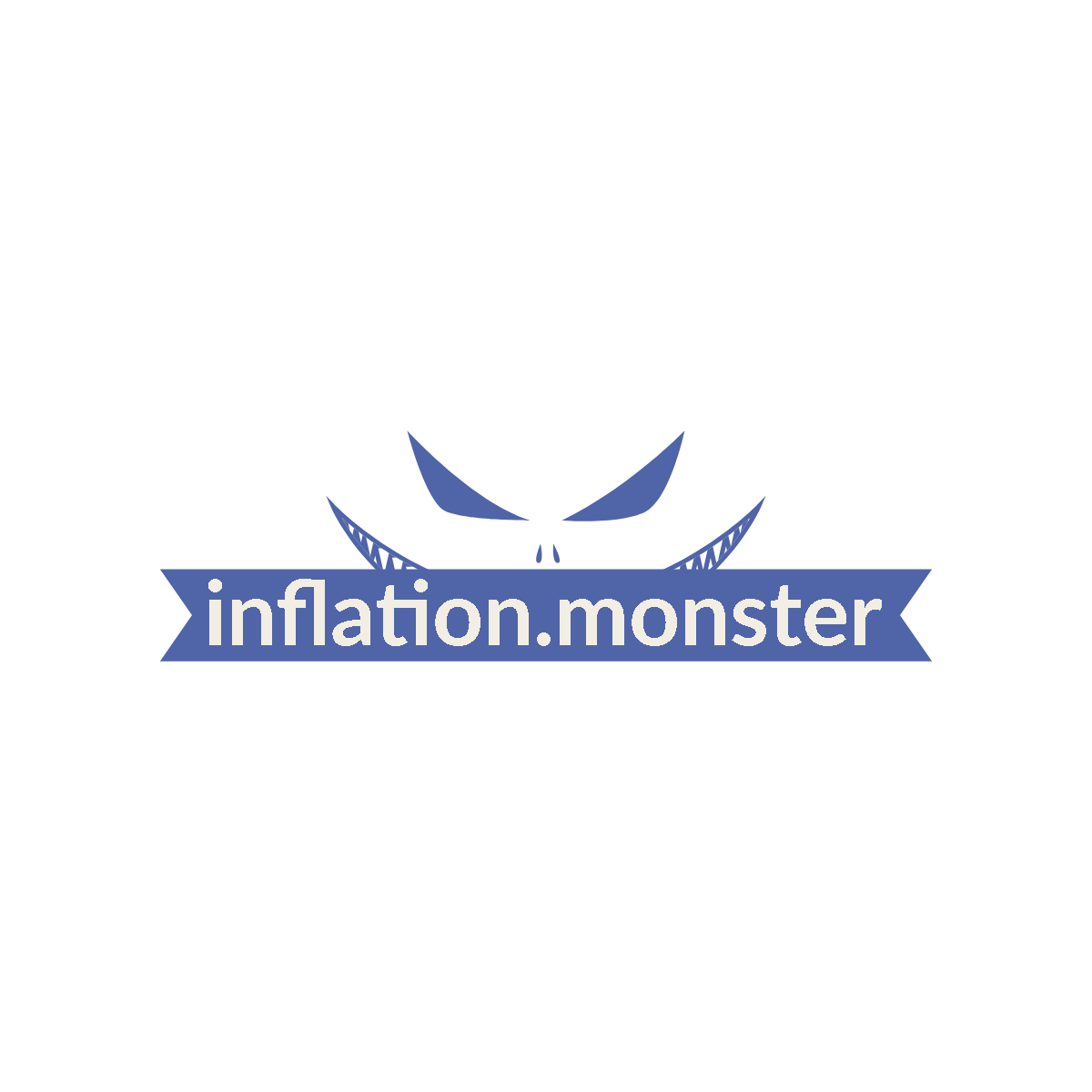Money management becomes even more crucial in times of high inflation, as the value of money rapidly decreases. In this article, we explore the strategies and tactics individuals can employ to protect their wealth and navigate the challenging financial landscape during such periods. From investing in assets that retain value to diversifying portfolios, we delve into the tools and techniques that can help you stay ahead of the inflation monster. Join us as we uncover the secrets to effective money management in times of high inflation.

Understanding High Inflation
When it comes to managing our finances, one key concept that we must wrap our heads around is inflation. Inflation refers to the increase in prices of goods and services over time, resulting in the value of money decreasing. This means that as inflation rises, our purchasing power decreases. It’s important to understand high inflation and its implications for effective money management.
What is inflation?
Inflation is an economic phenomenon where the general level of prices for goods and services increases, eroding the purchasing power of a currency. Essentially, it means that as time goes on, the same amount of money will buy you less than it did before. While a certain level of inflation is considered healthy for the economy, as it encourages spending and investment, high inflation can have detrimental effects on our personal finances.
Causes of high inflation
There can be various causes of high inflation, and it is important for us to understand these factors to navigate the financial landscape effectively. One major cause of high inflation is excessive growth in the money supply. When there is more money circulating in the economy, it can lead to increased demand for goods and services, driving up their prices. Other factors that can contribute to high inflation include increases in production costs, such as wages and raw materials, and fluctuations in international markets and exchange rates.
Impact of high inflation on money management
High inflation can have significant implications for our money management strategies. As the cost of living rises, it becomes vital for us to adjust our financial plans and take steps to protect our purchasing power. Failure to do so can result in our savings being eroded over time and financial goals becoming increasingly difficult to achieve. Therefore, it is crucial to be proactive and implement strategies to mitigate the impact of high inflation on our finances.
Budgeting Strategies
Budgeting is a fundamental aspect of money management, and during times of high inflation, it becomes even more critical. By reviewing and adjusting our budgets regularly, we can ensure that we are allocating our resources effectively and making the necessary adjustments to account for rising prices.
Reviewing and adjusting your budget
During periods of high inflation, it is essential to review our budgets frequently and make necessary adjustments. This involves taking a close look at our income and expenses, identifying areas where we can cut back, and reallocating funds to account for rising prices. By being diligent in reviewing and adjusting our budgets, we can stay ahead of inflation and make informed financial decisions.
Prioritizing essential expenses
In times of high inflation, it is crucial to prioritize our essential expenses. These are the expenses that we cannot do without, such as housing, food, and healthcare. By prioritizing these expenses, we can ensure that we meet our basic needs, even in the face of rising prices. It may require making sacrifices in other areas of our budget, but it is important to focus on what truly matters and prioritize our spending accordingly.
Identifying areas to cut back on expenses
While prioritizing essential expenses, it is also important to identify areas where we can cut back on expenses. This involves assessing our spending habits and determining where we can make adjustments without significantly impacting our quality of life. By cutting back on non-essential expenses, we can free up funds to allocate towards essential expenses and build a stronger financial foundation capable of withstanding high inflation.

Earning and Saving
In times of high inflation, simply budgeting and cutting back on expenses may not be enough to safeguard our financial well-being. It becomes crucial to explore strategies to increase our income and protect our savings.
Increasing your income
One way to combat the impact of high inflation is by increasing our income. This can be achieved through various means, such as taking on additional work or seeking ways to enhance our earning potential. By increasing our income, we can offset the effects of rising prices and maintain a certain level of financial stability.
Investing in inflation-resistant assets
Investing in inflation-resistant assets is another strategy that can help preserve our purchasing power. These assets tend to perform well during periods of high inflation, as their value tends to rise in tandem with rising prices. Examples of such assets include real estate, commodities like gold and silver, and certain stocks and bonds. By diversifying our investment portfolio with inflation-resistant assets, we can better protect against the erosion of our wealth.
Creating an emergency fund
Having an emergency fund is important in any financial plan, but it becomes even more critical during times of high inflation. An emergency fund provides a safety net during unexpected situations, helping us cover expenses without taking on debt or depleting our savings. By setting aside a portion of our income regularly, we can create a financial cushion that can weather the storms of inflation.
Debt Management
Managing debt effectively is essential in any financial climate, but it becomes even more crucial during high inflation. Failing to address debt properly can lead to mounting interest payments and an increased burden on our finances.
Managing existing debt
During times of high inflation, it is crucial to manage existing debt effectively. This involves making regular payments on time to avoid late fees and penalties, as well as considering strategies such as debt consolidation or negotiation to lower interest rates. By actively managing our debt, we can avoid the trap of accumulating more debt and reduce the financial strain caused by high inflation.
Avoiding high-interest loans
High inflation often leads to higher interest rates on loans, making it even more important for us to be cautious when taking on new debt. It is advisable to avoid high-interest loans whenever possible and opt for more favorable loan terms. By being selective and only taking on debt when necessary, we can minimize the impact of high inflation on our financial situation.
Refinancing options
Refinancing existing loans can be a viable option during times of high inflation. By refinancing, we can potentially secure lower interest rates, reduce monthly payments, and even shorten the loan term. However, it is crucial to carefully evaluate the terms and conditions of refinancing to ensure it aligns with our financial goals and provides true long-term benefits.

Protecting Your Purchasing Power
Preserving our purchasing power is a top priority during high inflation. There are several strategies that we can employ to ensure that our savings and investments retain their value despite rising prices.
Diversifying your assets
Diversifying our assets is a key strategy to protect against the impact of high inflation. By spreading our investments across different asset classes, such as stocks, bonds, real estate, and commodities, we can minimize the risk of any one asset being heavily impacted by inflation. Diversification provides a level of insulation against the eroding effects of inflation.
Investing in tangible assets
Investing in tangible assets can also help protect our purchasing power during high inflation. Tangible assets, such as real estate or precious metals, have inherent value that can withstand the effects of rising prices. These assets tend to appreciate in value during inflationary periods, providing a level of security against the eroding effects of inflation.
Utilizing inflation-protected securities
Inflation-protected securities, such as Treasury Inflation-Protected Securities (TIPS), are specifically designed to protect against inflation. These securities are indexed to inflation, meaning that their value increases in line with rising prices. By including these securities in our investment portfolio, we can ensure that a portion of our investments is directly linked to inflation and can maintain its value over time.
Evaluating Insurance Needs
Insurance plays a crucial role in our financial well-being, and during times of high inflation, it becomes essential to evaluate our insurance needs to ensure adequate coverage.
Reviewing policy coverage
Reviewing our insurance policies is a vital step in protecting our financial interests during high inflation. It is important to assess whether our policies provide sufficient coverage to account for rising prices. This includes evaluating coverage limits, deductibles, and premiums to ensure that we are adequately protected in the face of inflationary pressures.
Understanding inflation-adjusted policies
Certain types of insurance policies offer inflation-adjusted coverage, which can be beneficial during times of high inflation. These policies automatically increase coverage limits based on inflation rates, ensuring that our coverage keeps pace with rising prices. Understanding these inflation-adjusted policies and considering them as part of our insurance strategy can provide an added layer of protection against the effects of inflation.
Balancing insurance costs with benefits
While it is important to have adequate insurance coverage, it is also crucial to balance the costs with the benefits. High inflation can result in increased insurance premiums, and it is necessary to evaluate whether the coverage we are paying for aligns with our needs and financial capabilities. By striking a balance between insurance costs and benefits, we can ensure that we are adequately protected without overburdening our finances.
Retirement Planning
Planning for retirement is a long-term financial goal that requires careful consideration and adjustment in times of high inflation.
Inflation’s impact on retirement savings
High inflation can have a significant impact on our retirement savings. As prices rise, the value of our savings diminishes, which can make it harder to maintain the desired standard of living during retirement. It is important to be aware of the eroding effects of inflation and take appropriate measures to safeguard our retirement savings.
Adjusting retirement goals
During high inflation, it may be necessary to adjust our retirement goals to ensure that they align with the economic realities of the time. This could mean reevaluating the target retirement age, the desired retirement income, or the investment strategies employed. By making adjustments and being realistic about our retirement goals, we can better prepare ourselves for the challenges that high inflation may present.
Exploring retirement income options
Exploring various retirement income options is crucial in times of high inflation. By diversifying our sources of income, such as through investments, rental properties, or part-time work, we can create a more resilient retirement plan that can withstand the effects of rising prices. It is important to consider multiple income streams and evaluate their potential to provide a steady income during retirement.
Financial Education and Professional Advice
Staying informed about inflation and economic trends is vital for effective money management, especially during times of high inflation. Seeking the guidance of a qualified financial advisor and attending educational seminars and workshops can provide valuable insights and help us make informed decisions.
Staying informed about inflation and economic trends
Keeping ourselves updated about inflation and economic trends is crucial for effective money management during high inflation. This can involve reading financial news, following economic indicators, and staying informed about government policies and actions related to inflation. By staying informed, we can anticipate changes and make proactive financial decisions.
Engaging with a qualified financial advisor
Seeking the guidance of a qualified financial advisor can be immensely helpful in navigating the complexities of high inflation. A financial advisor can provide personalized advice and create a tailored financial plan that accounts for the impact of inflation. They can help us understand the implications of inflation on our individual circumstances and offer strategies to mitigate its effects.
Attending seminars and workshops
Attending seminars and workshops focused on financial education can provide us with valuable tools and knowledge to manage our finances effectively during high inflation. These educational events offer insights into various aspects of money management, including understanding inflation, investing during inflationary periods, and adjusting financial plans accordingly. By leveraging the expertise of professionals, we can equip ourselves with the necessary skills to navigate the challenges posed by high inflation.
Monitoring and Adjusting
Effectively managing our finances in times of high inflation requires regular monitoring and adjustment of our financial plans and strategies.
Regularly reviewing and adjusting your financial plan
Regularly reviewing and adjusting our financial plan is essential to staying on top of our finances during high inflation. This involves monitoring our income, expenses, investments, and debt to ensure that they align with our financial goals and account for rising prices. By making necessary adjustments as circumstances change, we can maintain financial stability and proactively tackle the challenges of inflation.
Tracking inflation rates
Monitoring inflation rates is a key component of effectively managing our finances during high inflation. By keeping an eye on inflation indicators, such as the Consumer Price Index (CPI) or the Producer Price Index (PPI), we can gain insights into the direction and magnitude of inflationary pressures. This information can guide our financial decisions and help us make informed choices in our money management strategies.
Modifying investment strategies
Investment strategies should be adapted to accommodate the impact of high inflation. This may involve rebalancing our investment portfolio, diversifying into assets that tend to perform well during inflationary periods, or considering alternative investment options. By modifying our investment strategies to offset the effects of rising prices, we can protect our wealth and maintain our financial well-being.
Maintaining a Long-Term Perspective
In times of high inflation, it is crucial to maintain a long-term perspective and avoid making impulsive financial decisions based solely on short-term circumstances.
Understanding inflation as a long-term challenge
Inflation is a long-term challenge that requires persistent management and planning. It is important to recognize that inflationary periods come and go, and that adjusting our financial strategies accordingly can help us navigate through these challenges. By maintaining a long-term perspective and understanding that inflation is a recurring economic phenomenon, we can make more informed and prudent financial decisions.
Avoiding impulsive financial decisions
During high inflation, it is common to feel anxious or compelled to make impulsive financial decisions. However, it is important to resist the temptation and instead approach our financial decisions with thoughtfulness and careful consideration. By avoiding impulsive decisions, we can prevent rash actions that may have detrimental long-term consequences and ensure that our financial choices are aligned with our overall goals and objectives.
Evaluating risks and rewards
Evaluating risks and rewards is crucial during periods of high inflation. It is important to weigh the potential benefits of certain financial actions against the associated risks. For example, while investing in certain assets may offer protection against inflation, it also carries its own risks. By thoroughly evaluating the risks and rewards of various financial decisions, we can make well-informed choices and strike a balance between preserving our wealth and maximizing potential returns.




